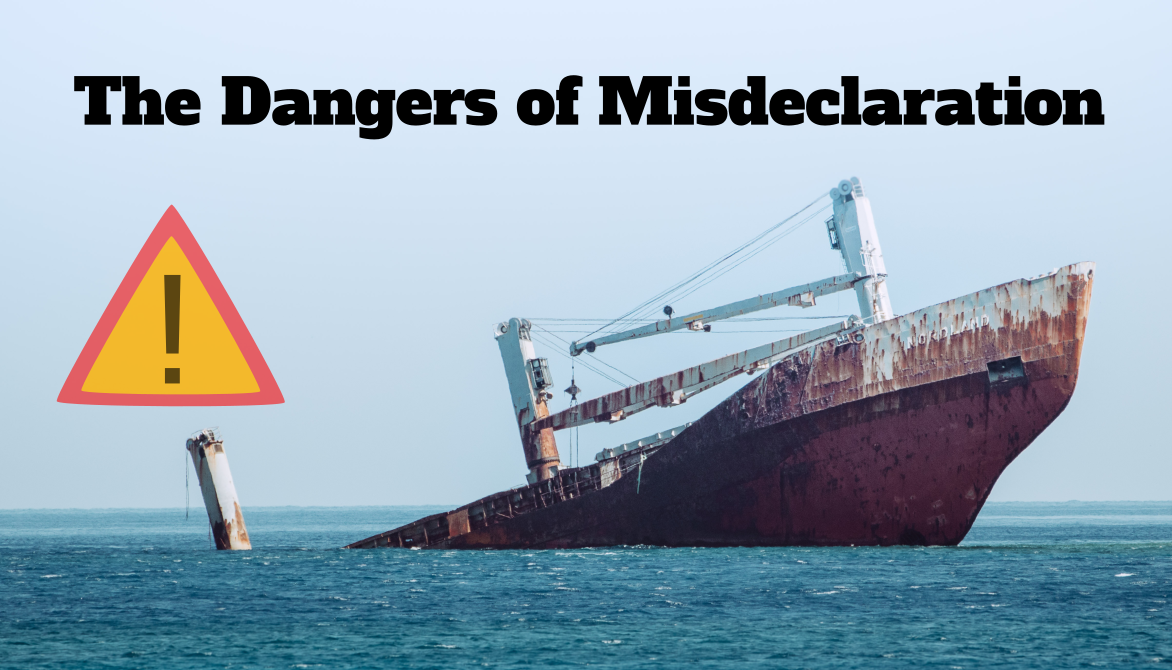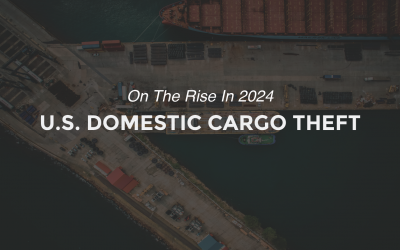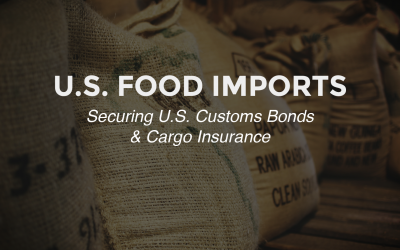Misdeclared cargo can pose a serious danger to shippers. See how misdeclaration occurs and how you can be held liable for damages.
The KMTC containership was docked in Thailand on May 27th earlier this spring. At approximately 6:45 in the morning, an explosion occurred and the ship lit up in flames. The fire roared late into the afternoon when authorities were finally able to put the fire out. By that time 130 people had already been hospitalized. Luckily the ship was still docked, a fire like this out on the open sea could have been detrimental.
The cause of the fire was determined to be containers storing calcium hypochlorite and chlorinated paraffin. Both of these goods are considered dangerous and were misdeclared by their owners.
What it Means to Misdeclare Cargo
Cargo is misdeclared when the physical goods and the description of these goods are not the same. According to the Cargo Incident Notification System, 27% of incidents on cargo ships can be attributed to the misdeclaration of goods.
30 years ago, when shipping standards were more lenient, labeling goods as kitchen supplies or sporting goods would have sufficed. However, present-day container ships can fit 18,000 20 ft. containers on board. If the goods stored within those containers are not properly labeled, the ship’s crew will not be able to take the proper safety precautions when loading and storing them. This is especially important if the stored goods fall under the category of dangerous or hazardous, which is the case for 10% of all containers.
How Does Misdeclared Cargo Occur?
Sometimes, misdeclared cargo is an accident, however, other times importers/exporters will purposely misidentify their cargo as a way to deceive shippers. Shipping companies are experienced in transporting goods and do not transport certain items that they consider dangerous.
For example, the chemical calcium hypochlorite identified in the story above is highly volatile and most shippers will not carry it. Sometimes, shipment owners label it as calcium salt or calcium chloride in order to get it across the ocean. This specific chemical has been the cause of numerous ship fires, explosions, and deaths.
In the event of a fire on a container ship, there is no help coming, no ocean fire department. The crew is charged with the job of managing fires and putting them out. This is a dangerous task and numerous lives are lost each year to containership fires.
Cargo Incident Notification System (CINS)
The Cargo Incident Notification System is a group of 17 shipping lines whose goal is to share information about all cargo related incidents. The group’s primary objective is to highlight the risks of certain cargo or packing failures and improve safety. The CINS was created in direct response to the misdeclaration of goods and containership accidents.
Who is Liable for the Misdeclaration of Goods?
In the case damage is due to the misdeclaration of goods, the cargo owner is typically held liable for all damages. This includes reimbursing the shipping company for all damage to the ship and paying other cargo owners whose goods were damaged or destroyed. These numbers could quickly add up to tens of millions of dollars. There can also be criminal charges to the cargo owner in the case of death or injury of crew members.







